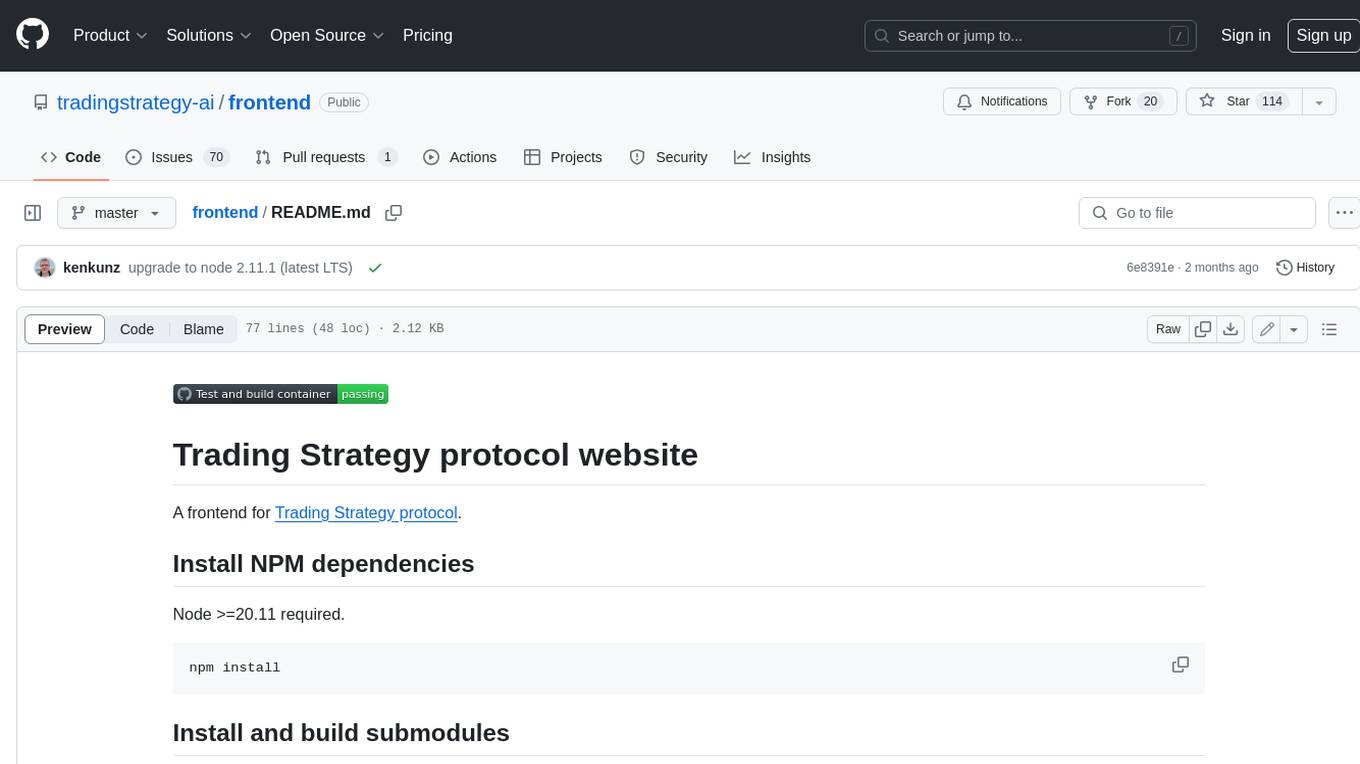
ai2html
A script for Adobe Illustrator that converts your Illustrator artwork into an html page.
Stars: 898
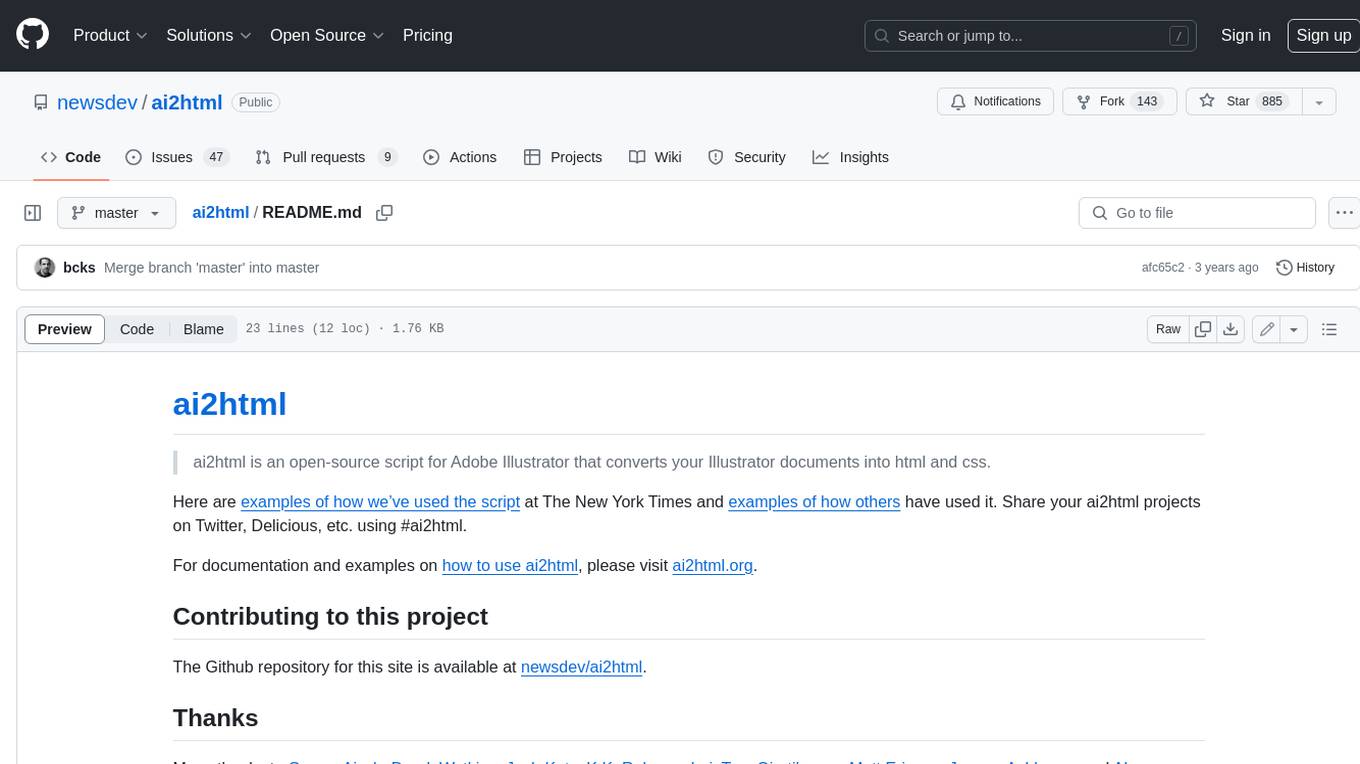
ai2html is an open-source script for Adobe Illustrator that converts your Illustrator documents into html and css.
README:
ai2html is an open-source script for Adobe Illustrator that converts your Illustrator documents into html and css.
Here are examples of how we’ve used the script at The New York Times and examples of how others have used it. Share your ai2html projects on Twitter, Delicious, etc. using #ai2html.
For documentation and examples on how to use ai2html, please visit ai2html.org.
The Github repository for this site is available at newsdev/ai2html.
Many thanks to Gregor Aisch, Derek Watkins, Josh Katz, K.K. Rebecca Lai, Tom Giratikanon, Matt Ericson, Jeremy Ashkenas and Alan McLean for their incredible contributions to this project, as well as to my colleagues in The New York Times Graphics Department for their patient guidance.
If you’re learning to write Javascript for Adobe Illustrator, John Wundes, has many wonderful scripts. explore.js is particularly helpful for understanding what attributes are attached to Illustrator objects.
Created by Archie Tse / The New York Times
Copyright (c) 2011-2021 The New York Times Company
For Tasks:
Click tags to check more tools for each tasksFor Jobs:
Alternative AI tools for ai2html
Similar Open Source Tools

ai2html
ai2html is an open-source script for Adobe Illustrator that converts your Illustrator documents into html and css.
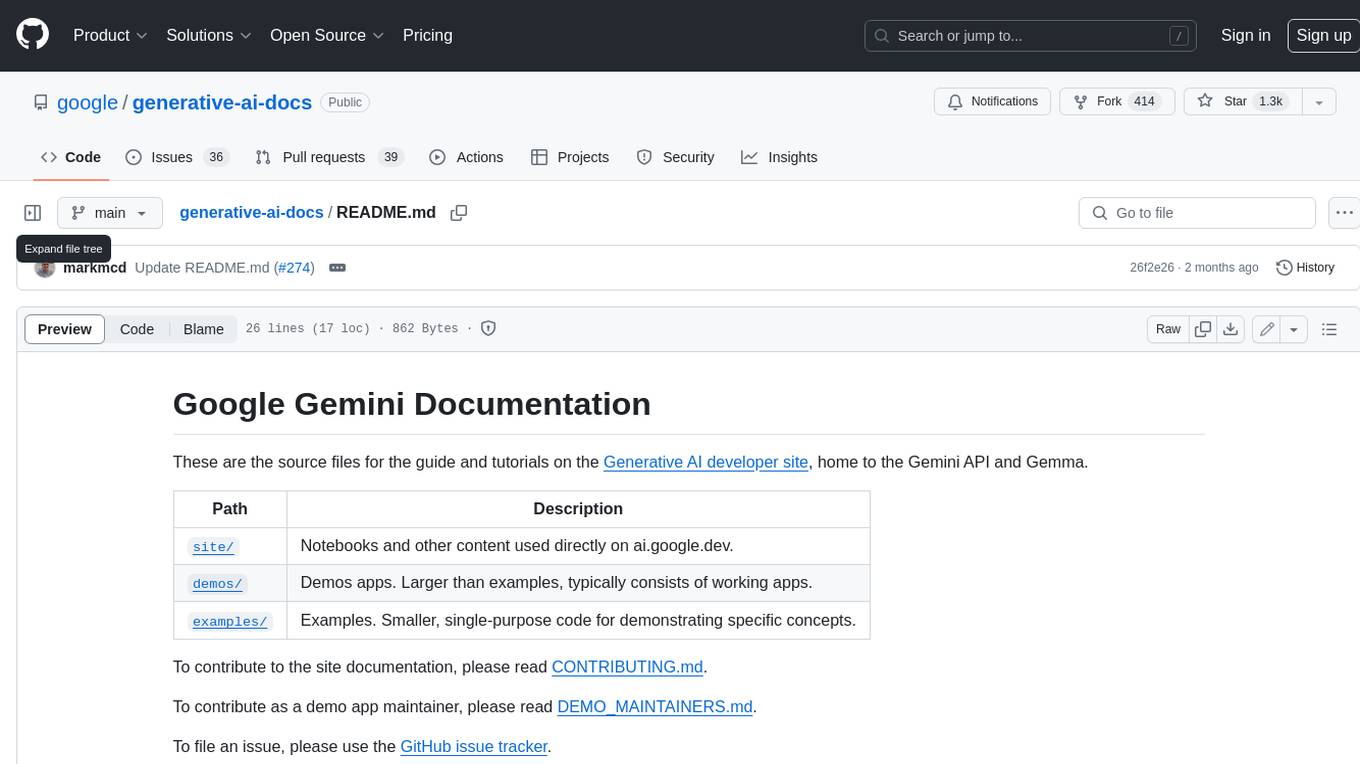
generative-ai-docs
The Google Gemini Documentation repository contains the source files for the guide and tutorials on the Generative AI developer site, which is home to the Gemini API and Gemma. The repository includes notebooks and other content used directly on ai.google.dev, as well as demos and examples. To contribute to the site documentation, please read CONTRIBUTING.md. To contribute as a demo app maintainer, please read DEMO_MAINTAINERS.md. To file an issue, please use the GitHub issue tracker.
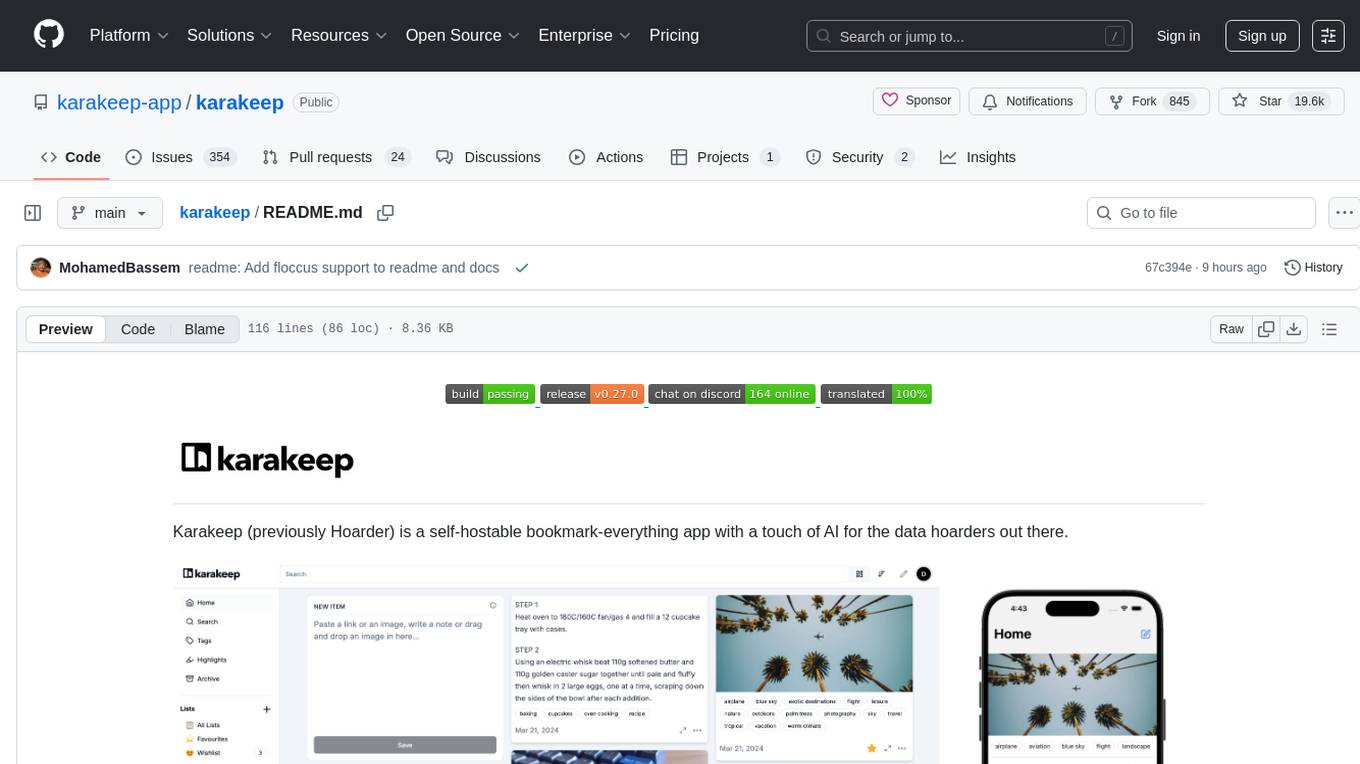
karakeep
Karakeep is a self-hostable bookmark-everything app with a touch of AI for data hoarders. It allows users to bookmark links, take notes, store images and pdfs, and offers features like automatic fetching, full-text search, AI-based tagging, OCR, rule-based engine, Chrome plugin, Firefox addon, iOS and Android apps, auto hoarding from RSS feeds, REST API, multi-language support, and more. The app is under heavy development and aims to provide a self-hosting first solution for managing bookmarks and content.
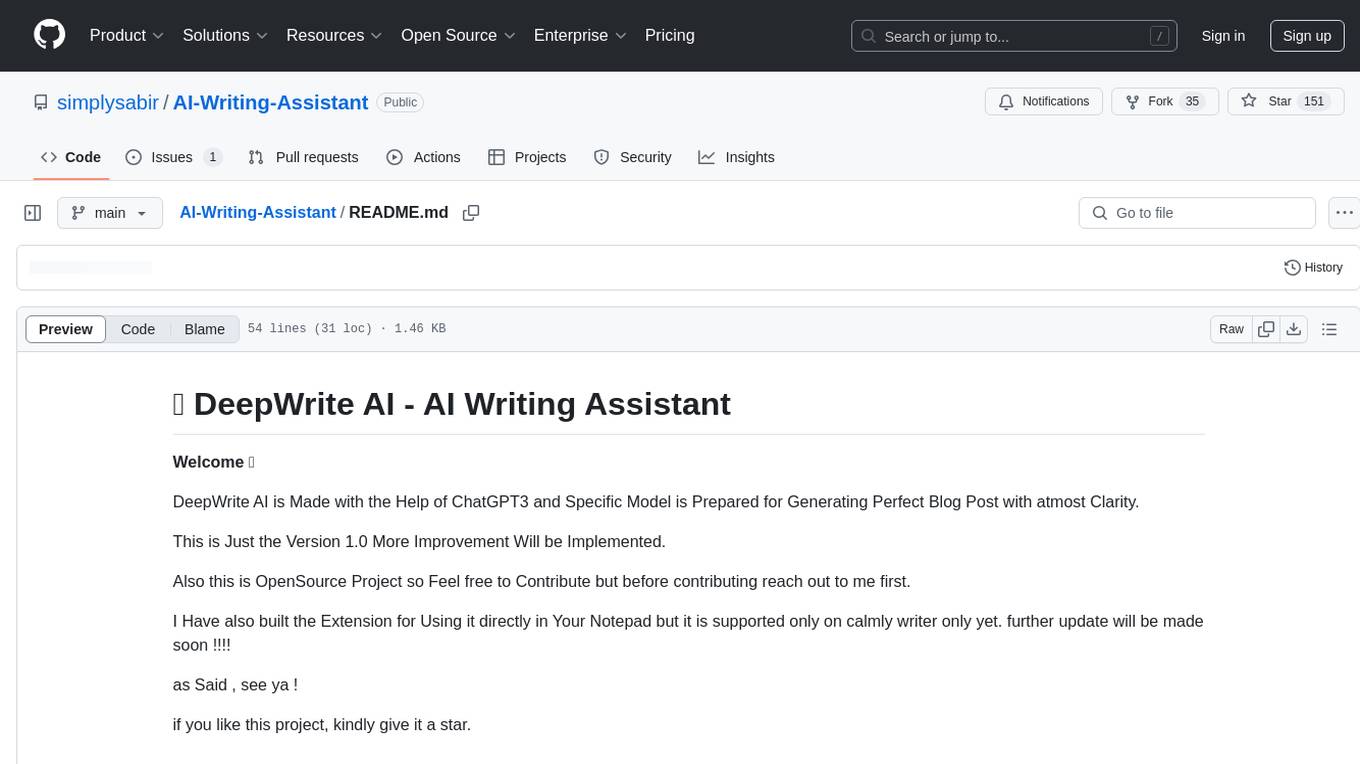
AI-Writing-Assistant
DeepWrite AI is an AI writing assistant tool created with the help of ChatGPT3. It is designed to generate perfect blog posts with utmost clarity. The tool is currently at version 1.0 with plans for further improvements. It is an open-source project, welcoming contributions. An extension has been developed for using the tool directly in Notepad, currently supported only on Calmly Writer. The tool requires installation and setup, utilizing technologies like React, Next, TailwindCSS, Node, and Express. For support, users can message the creator on Instagram. The creator, Sabir Khan, is an undergraduate student of Computer Science from Mumbai, known for frequently creating innovative projects.
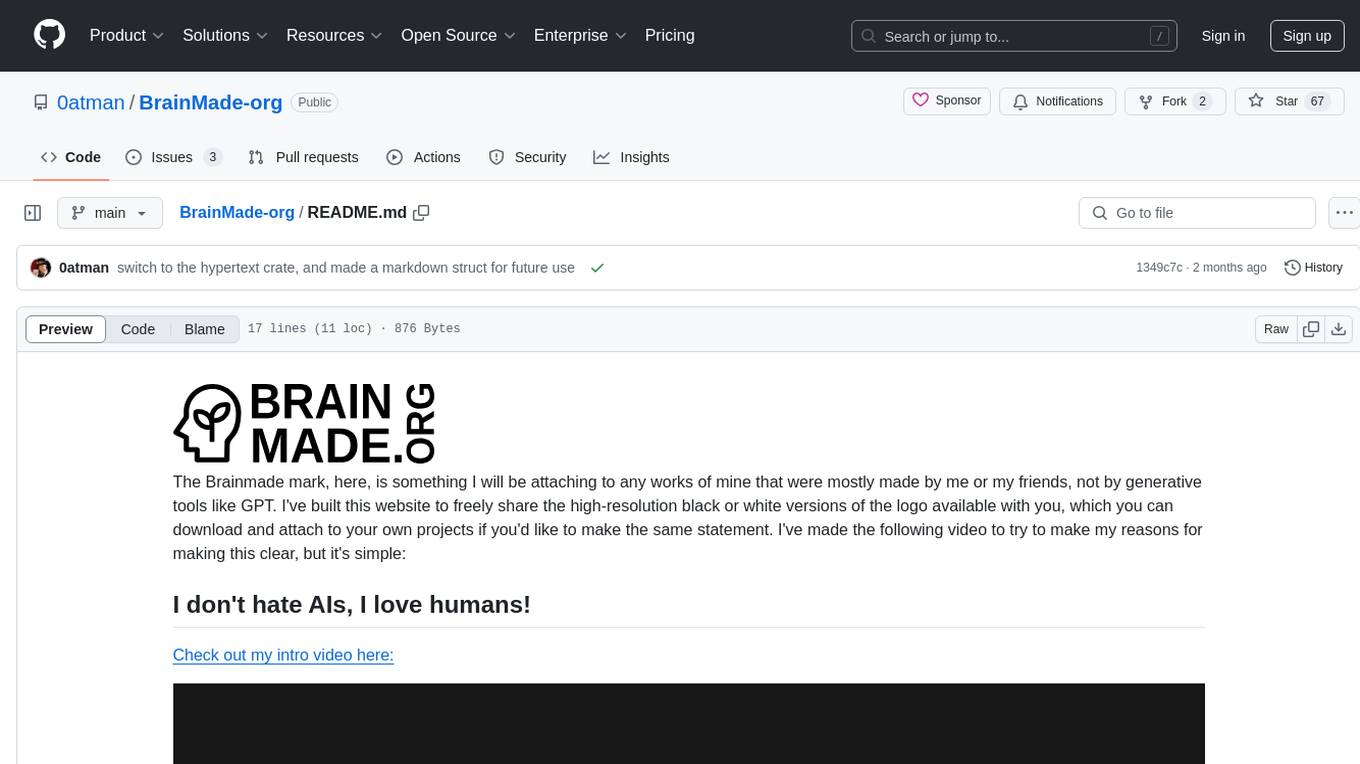
BrainMade-org
BrainMade-org is a website created to freely share high-resolution black or white versions of a logo, intended to be attached to works made by the creator or friends, not by generative tools like GPT. The logo is available for download to make a statement of valuing human creativity over AI-generated content.
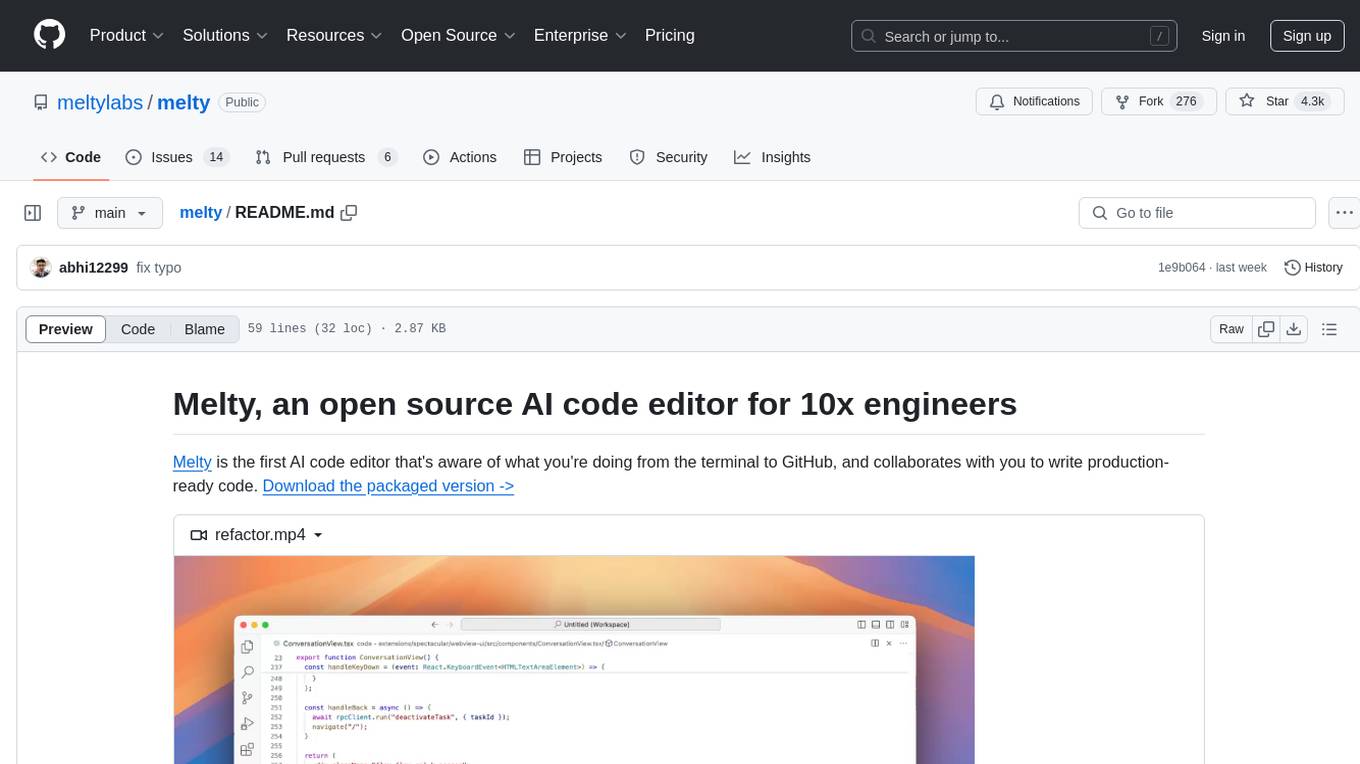
melty
Melty is an open source AI code editor designed to help developers write production-ready code by collaborating with them from the terminal to GitHub. It can refactor code, create web apps from scratch, navigate large codebases, and write its own commits. Melty aims to help developers understand their code better, watch every change made, learn and adapt to the codebase, and integrate with various development tools.
Virtual_Avatar_ChatBot
Virtual_Avatar_ChatBot is a free AI Chatbot with visual movement that runs on your local computer with minimal GPU requirement. It supports various features like Oogbabooga, betacharacter.ai, and Locall LLM. The tool requires Windows 7 or above, Python, C++ Compiler, Git, and other dependencies. Users can contribute to the open-source project by reporting bugs, creating pull requests, or suggesting new features. The goal is to enhance Voicevox functionality, support local LLM inference, and give the waifu access to the internet. The project references various tools like desktop-waifu, CharacterAI, Whisper, PYVTS, COQUI-AI, VOICEVOX, and VOICEVOX API.
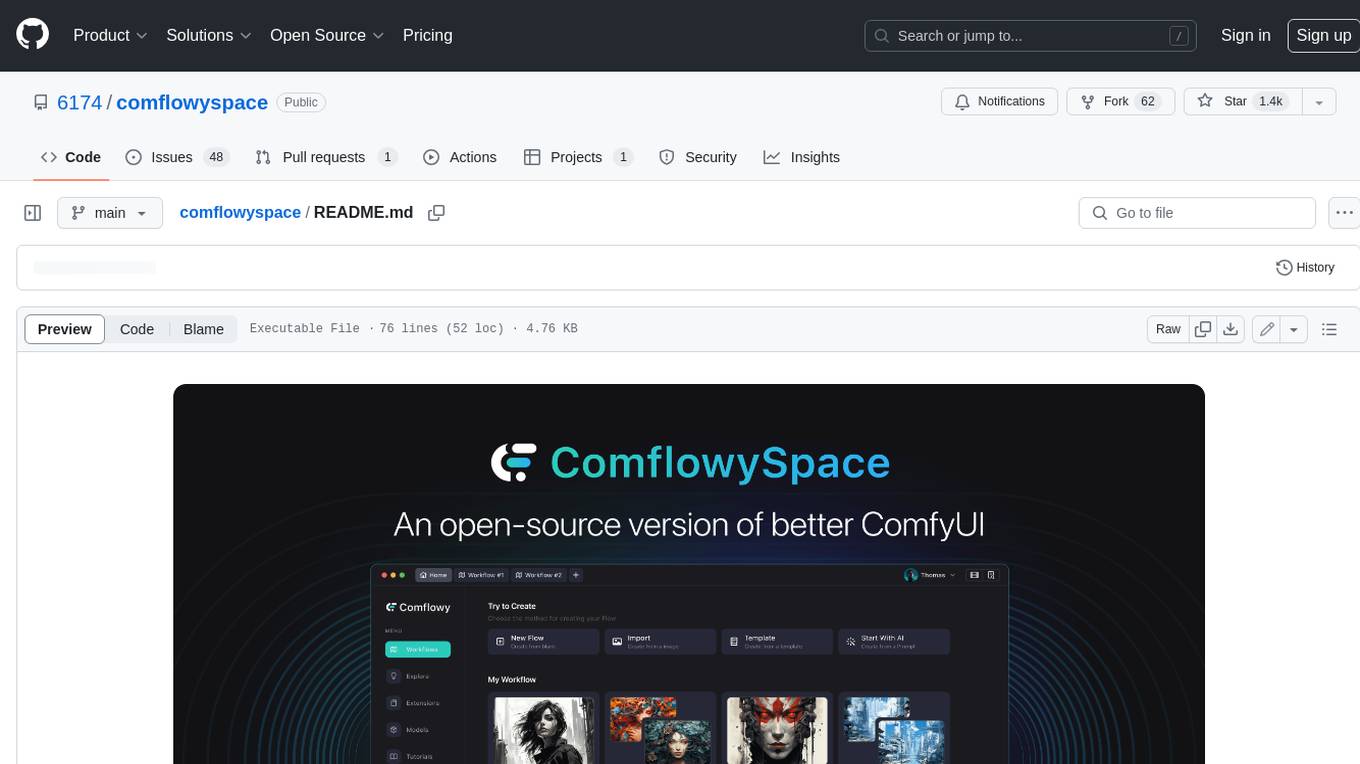
comflowyspace
Comflowyspace is an open-source AI image and video generation tool that aims to provide a more user-friendly and accessible experience than existing tools like SDWebUI and ComfyUI. It simplifies the installation, usage, and workflow management of AI image and video generation, making it easier for users to create and explore AI-generated content. Comflowyspace offers features such as one-click installation, workflow management, multi-tab functionality, workflow templates, and an improved user interface. It also provides tutorials and documentation to lower the learning curve for users. The tool is designed to make AI image and video generation more accessible and enjoyable for a wider range of users.
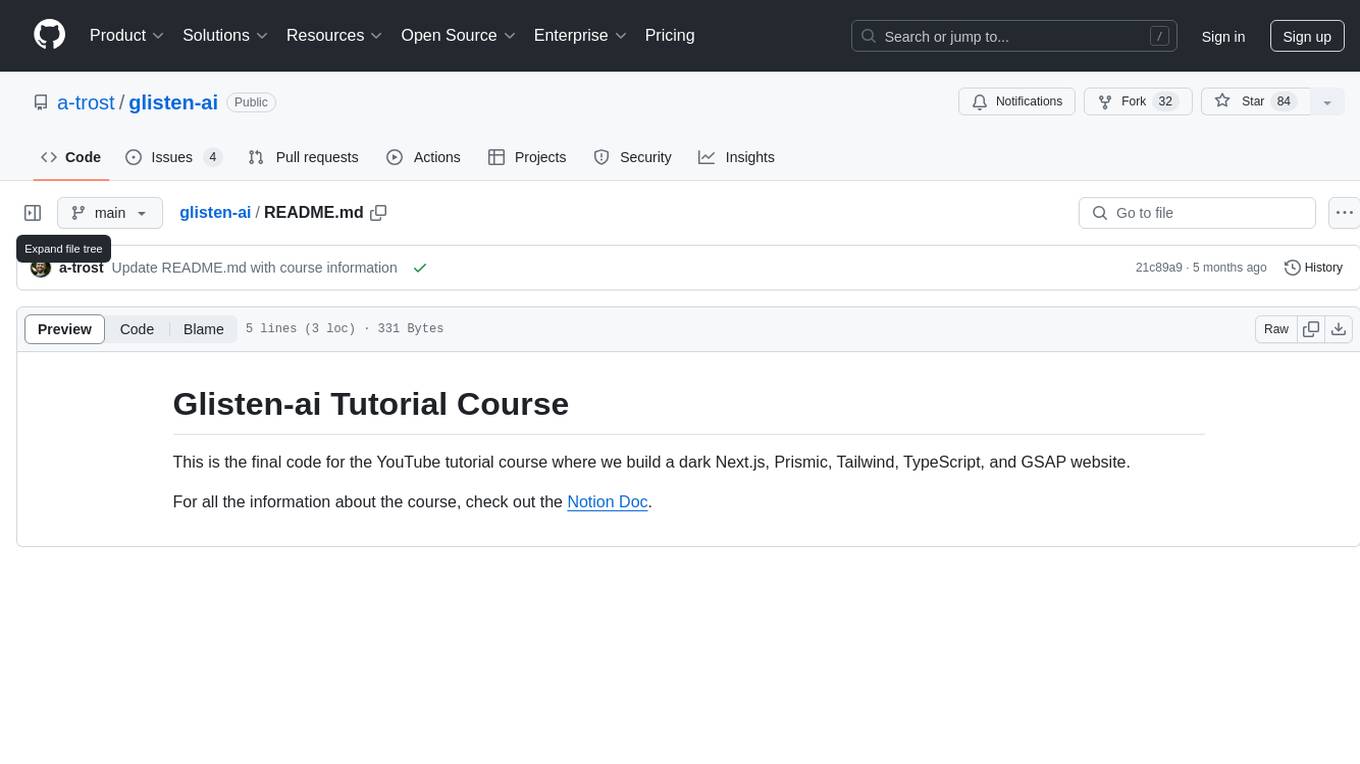
glisten-ai
Glisten-ai Tutorial Course is the final code for a YouTube tutorial course demonstrating the creation of a dark Next.js, Prismic, Tailwind, TypeScript, and GSAP website. The repository contains the code used in the tutorial, providing a practical example for building websites using these technologies.
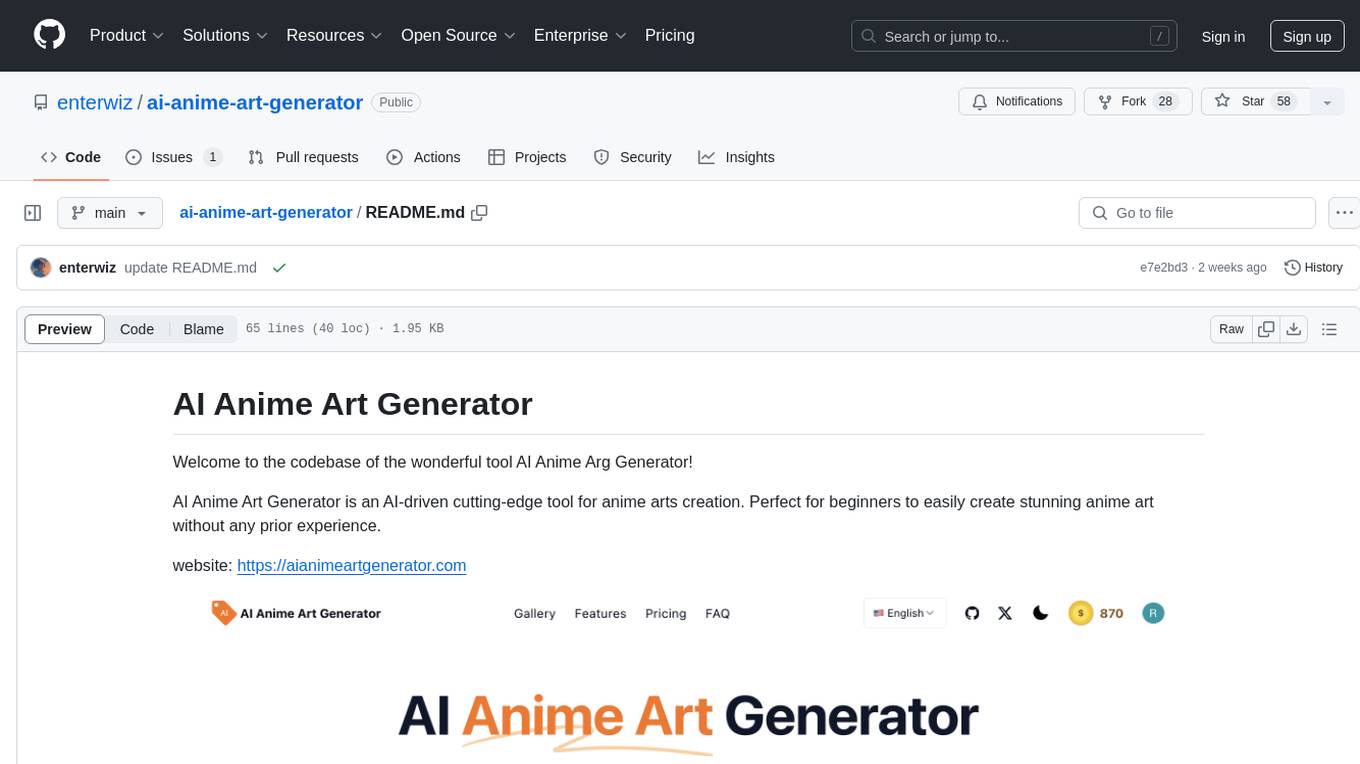
ai-anime-art-generator
AI Anime Art Generator is an AI-driven cutting-edge tool for anime arts creation. Perfect for beginners to easily create stunning anime art without any prior experience. It allows users to create detailed character designs, custom avatars for social media, and explore new artistic styles and ideas. Built on Next.js, TailwindCSS, Google Analytics, Vercel, Replicate, CloudFlare R2, and Clerk.
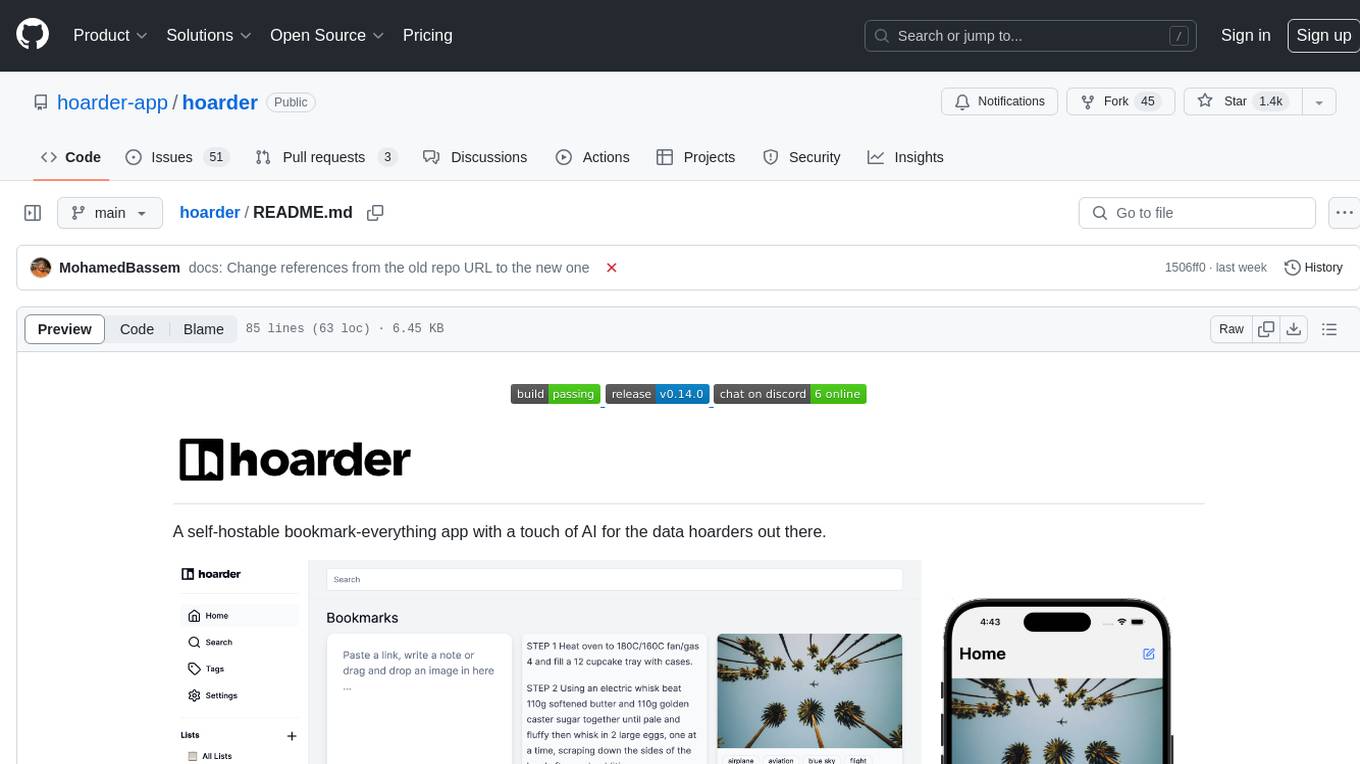
hoarder
A self-hostable bookmark-everything app with a touch of AI for data hoarders. Features include bookmarking links, taking notes, storing images, automatic fetching for link details, full-text search, AI-based automatic tagging, Chrome and Firefox plugins, iOS and Android apps, dark mode support, and self-hosting. Built to address the need for archiving and previewing links with automatic tagging. Developed by a systems engineer to stay connected with web development and cater to personal use cases.
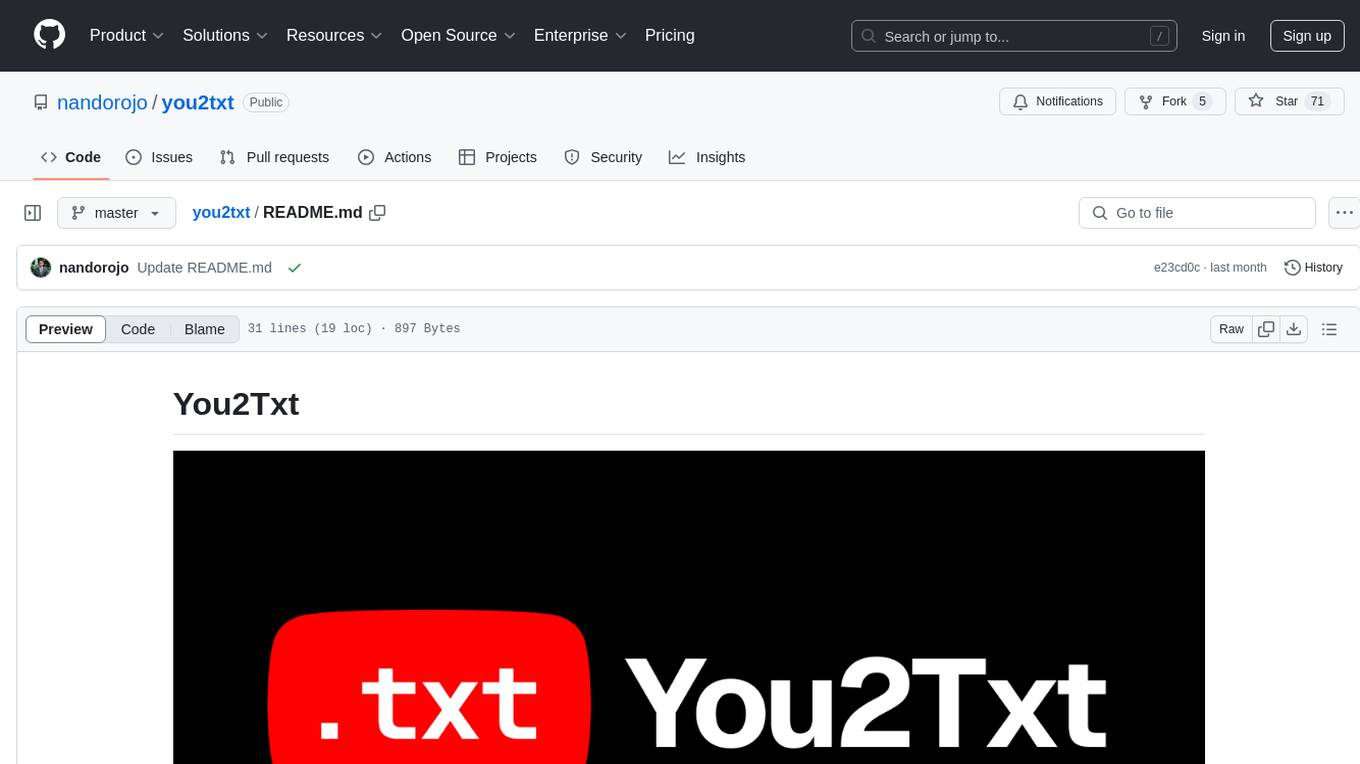
you2txt
You2Txt is a tool developed for the Vercel + Nvidia 2-hour hackathon that converts any YouTube video into a transcribed .txt file. The project won first place in the hackathon and is hosted at you2txt.com. Due to rate limiting issues with YouTube requests, it is recommended to run the tool locally. The project was created using Next.js, Tailwind, v0, and Claude, and can be built and accessed locally for development purposes.
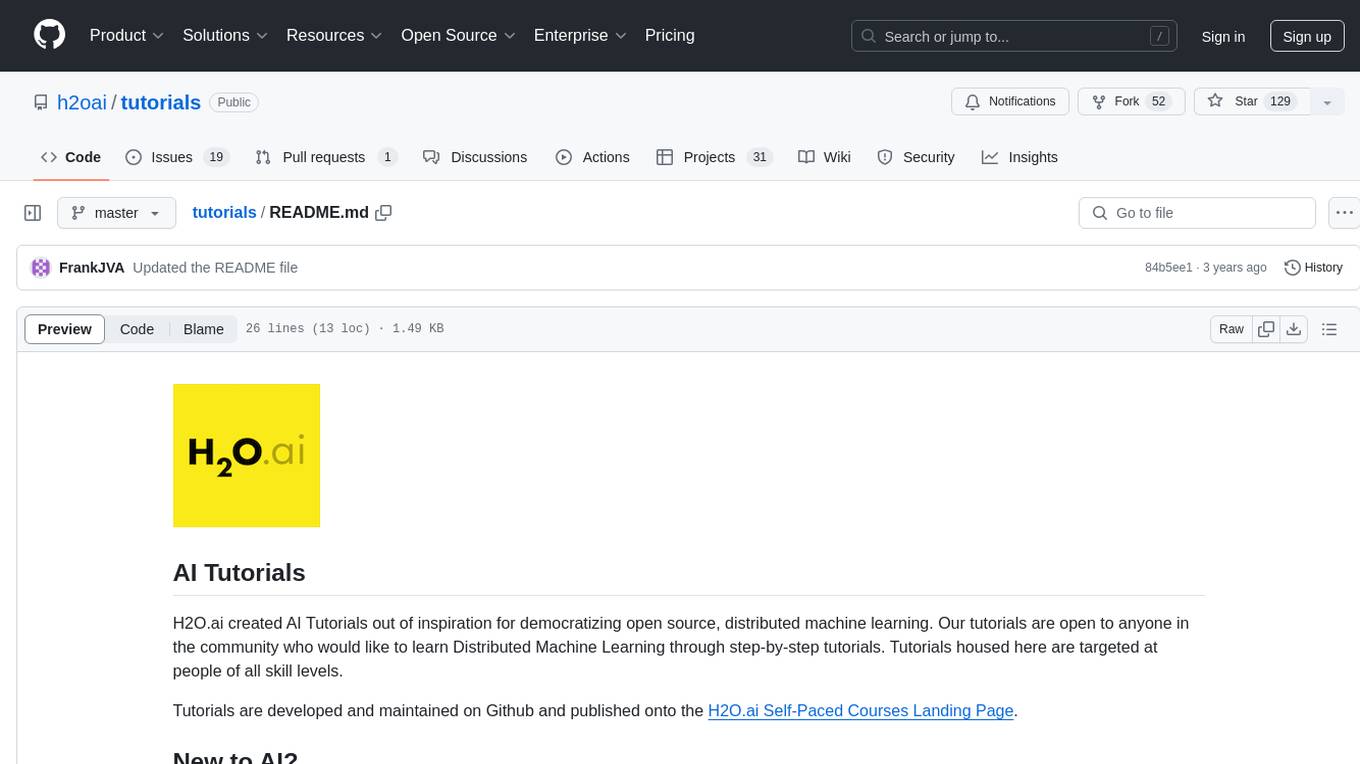
tutorials
H2O.ai's AI Tutorials aim to democratize open source, distributed machine learning by providing step-by-step tutorials for individuals of all skill levels. These tutorials are developed and maintained on Github and published on the H2O.ai Self-Paced Courses Landing Page. Users can begin their AI journey by exploring the tutorials available on the landing page and can contribute by fixing issues, updating tutorials, or creating new ones.
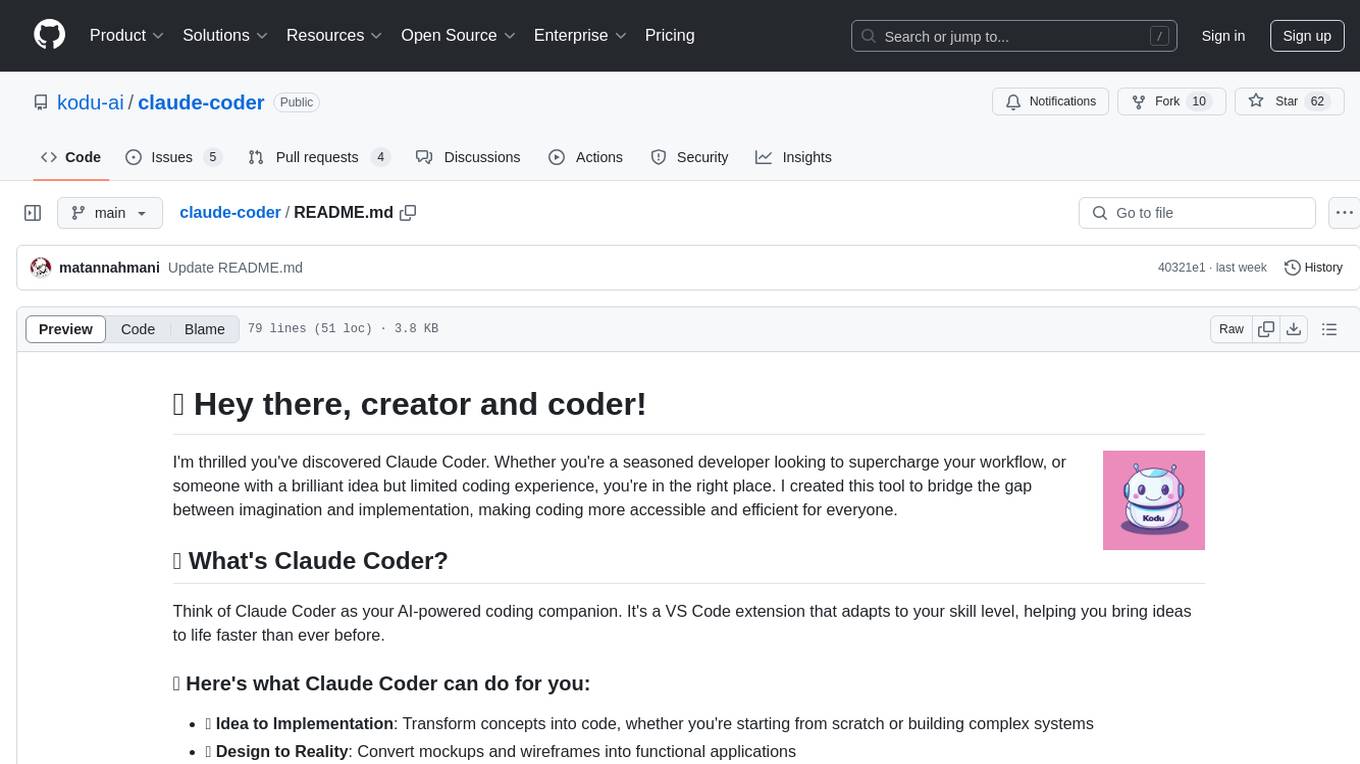
claude-coder
Claude Coder is an AI-powered coding companion in the form of a VS Code extension that helps users transform ideas into code, convert designs into applications, debug intuitively, accelerate development with automation, and improve coding skills. It aims to bridge the gap between imagination and implementation, making coding accessible and efficient for developers of all skill levels.
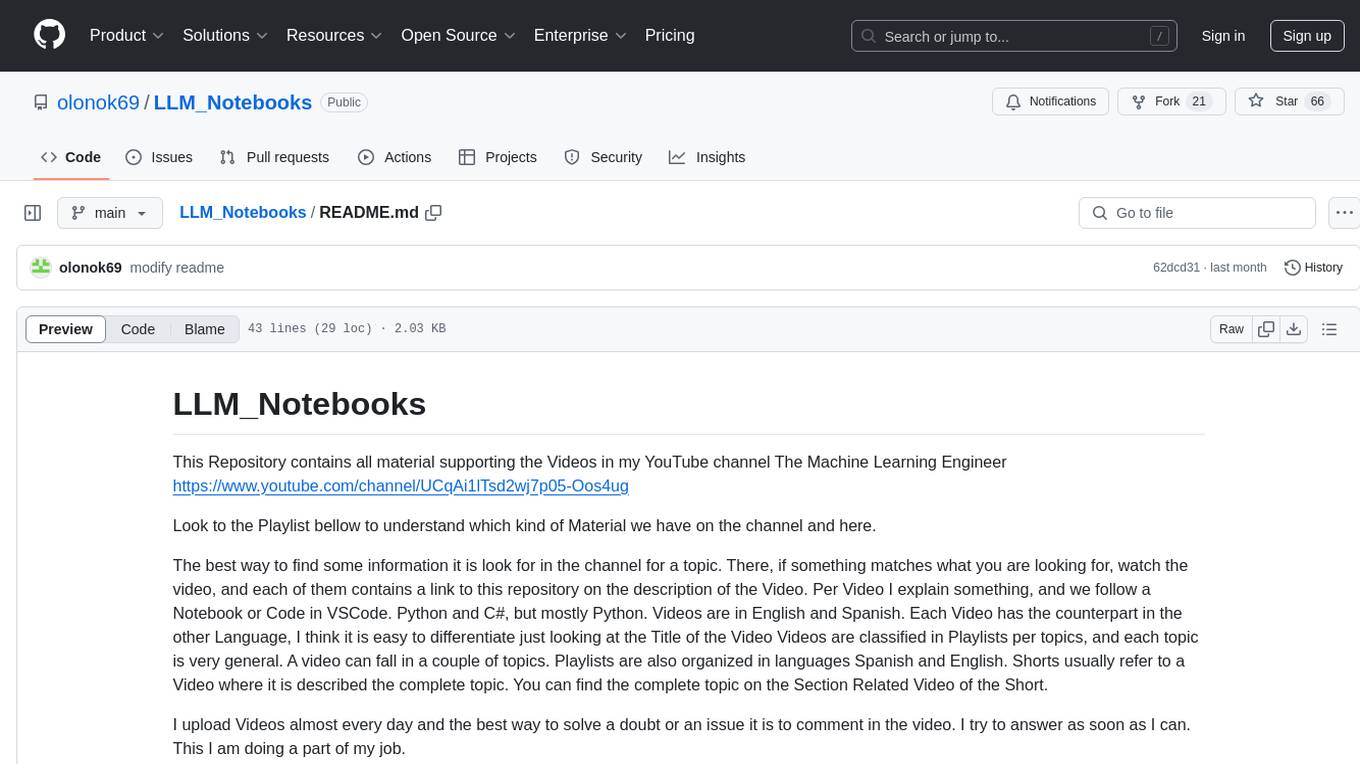
LLM_Notebooks
LLM_Notebooks is a repository supporting The Machine Learning Engineer YouTube channel. It contains materials related to various topics such as Generative AI, MLOps, ML projects, Azure Projects, Google VertexAi, ML Tricks, and more. The repository includes notebooks and code in Python and C#, with a focus on Python. The videos on the channel cover a wide range of topics in English and Spanish, organized into playlists based on general themes. The repository links are provided in the video descriptions for easy access. The creator uploads videos regularly and encourages viewers to subscribe, like, and leave constructive comments. The repository serves as a valuable resource for learning and exploring machine learning concepts and tools.
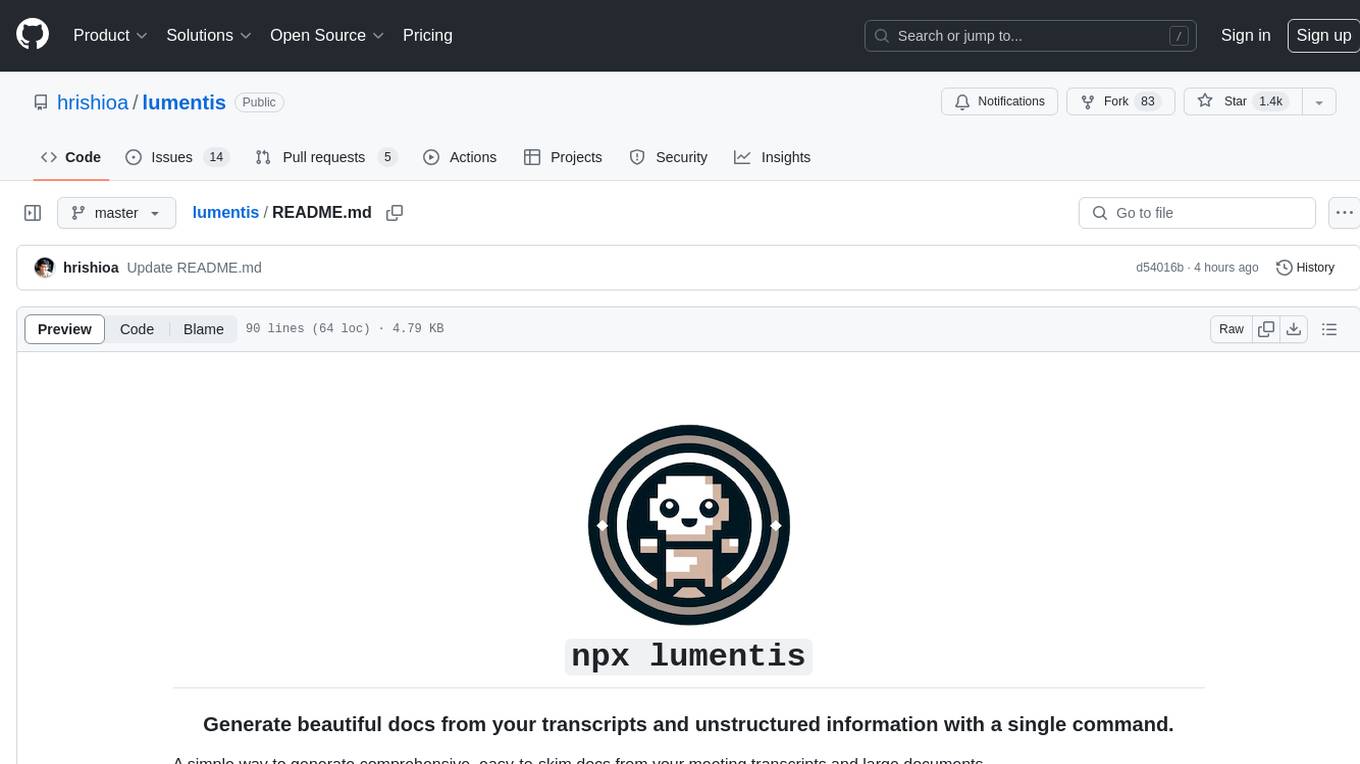
lumentis
Lumentis is a tool that allows users to generate beautiful and comprehensive documentation from meeting transcripts and large documents with a single command. It reads transcripts, asks questions to understand themes and audience, generates an outline, and creates detailed pages with visual variety and styles. Users can switch models for different tasks, control the process, and deploy the generated docs to Vercel. The tool is designed to be open, clean, fast, and easy to use, with upcoming features including folders, PDFs, auto-transcription, website scraping, scientific papers handling, summarization, and continuous updates.
For similar tasks

ai2html
ai2html is an open-source script for Adobe Illustrator that converts your Illustrator documents into html and css.
For similar jobs
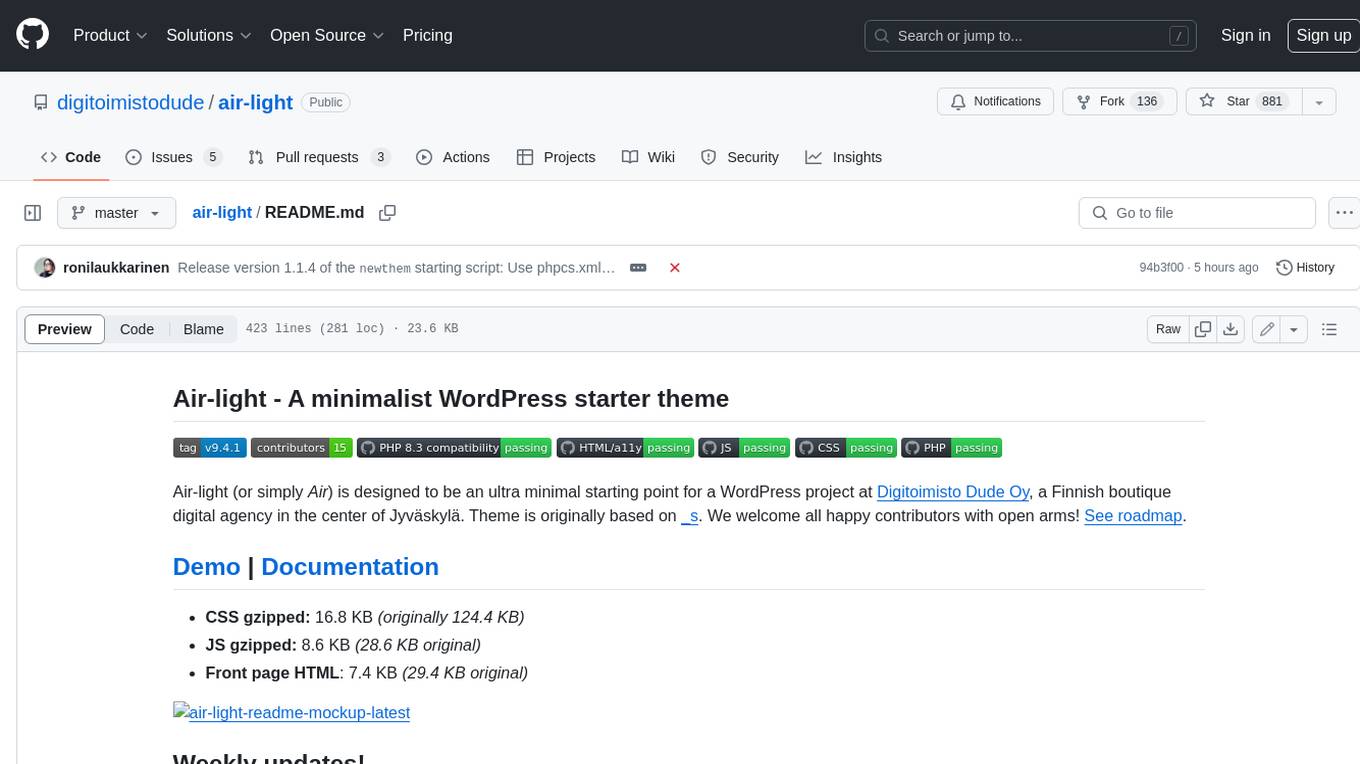
air-light
Air-light is a minimalist WordPress starter theme designed to be an ultra minimal starting point for a WordPress project. It is built to be very straightforward, backwards compatible, front-end developer friendly and modular by its structure. Air-light is free of weird "app-like" folder structures or odd syntaxes that nobody else uses. It loves WordPress as it was and as it is.

AirPower4T
AirPower4T is a development base library based on Vue3 TypeScript Element Plus Vite, using decorators, object-oriented, Hook and other front-end development methods. It provides many common components and some feedback components commonly used in background management systems, and provides a lot of enums and decorators.
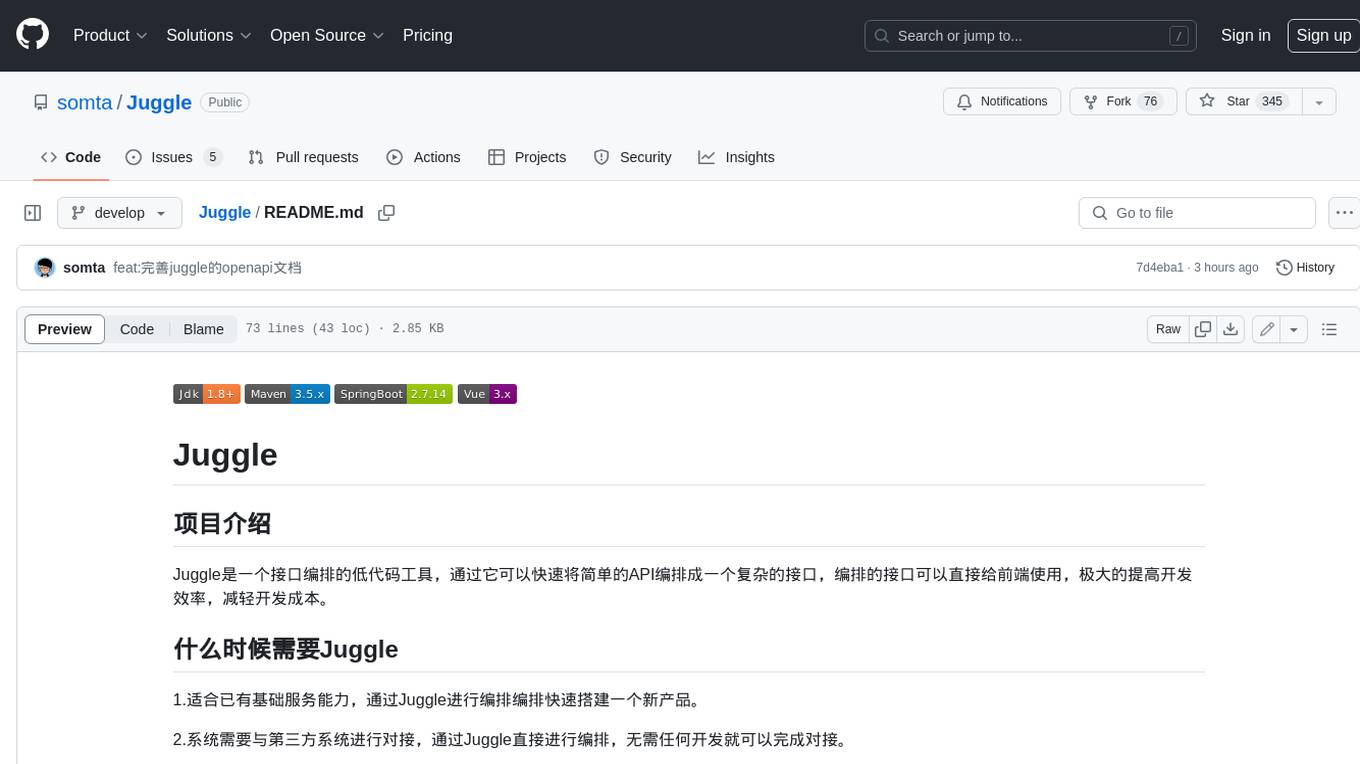
Juggle
Juggle is a low-code tool for interface orchestration, which can quickly orchestrate simple APIs into a complex interface. The orchestrated interface can be directly used by the front end, greatly improving development efficiency and reducing development costs.
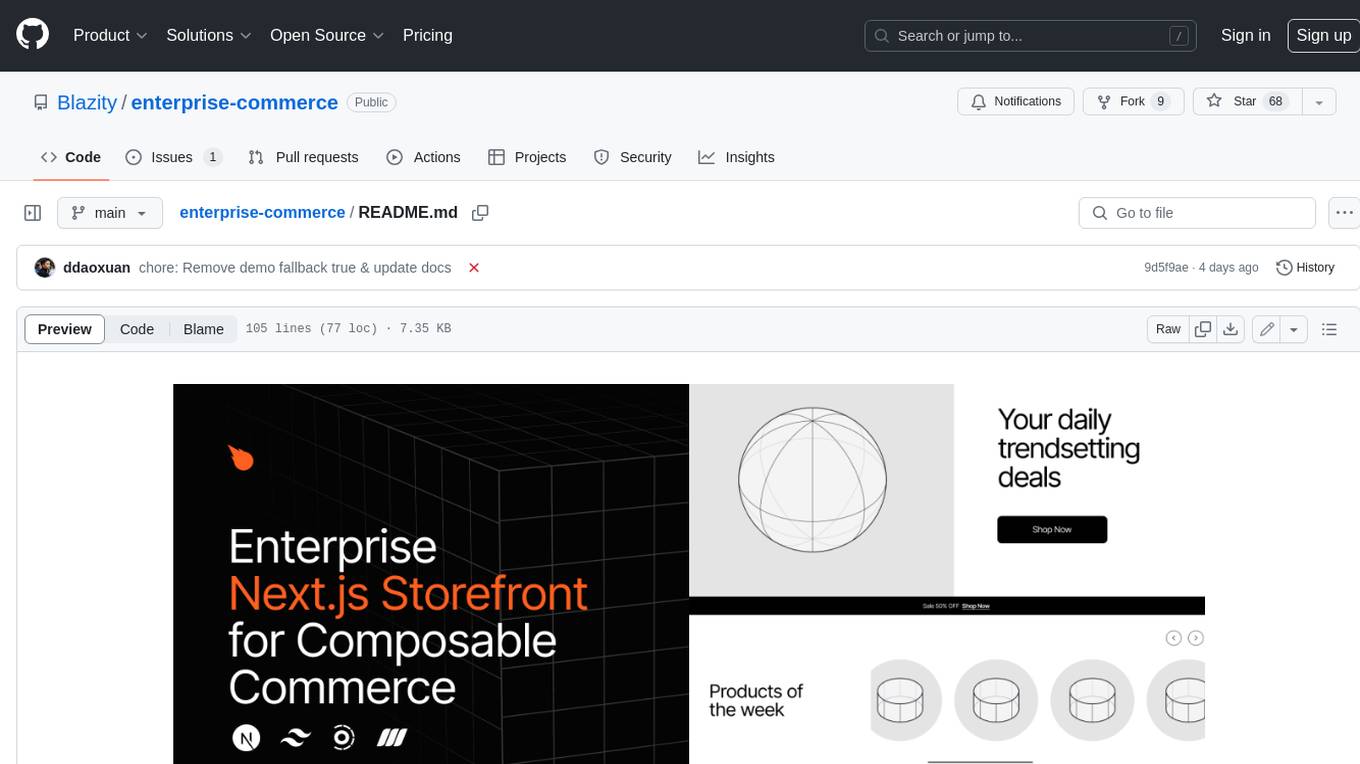
enterprise-commerce
Enterprise Commerce is a Next.js commerce starter that helps you launch your high-performance Shopify storefront in minutes, not weeks. It leverages the power of Vector Search and AI to deliver a superior online shopping experience without the development headaches.

ai2html
ai2html is an open-source script for Adobe Illustrator that converts your Illustrator documents into html and css.

nlux
nlux is an open-source Javascript and React JS library that makes it super simple to integrate powerful large language models (LLMs) like ChatGPT into your web app or website. With just a few lines of code, you can add conversational AI capabilities and interact with your favourite LLM.
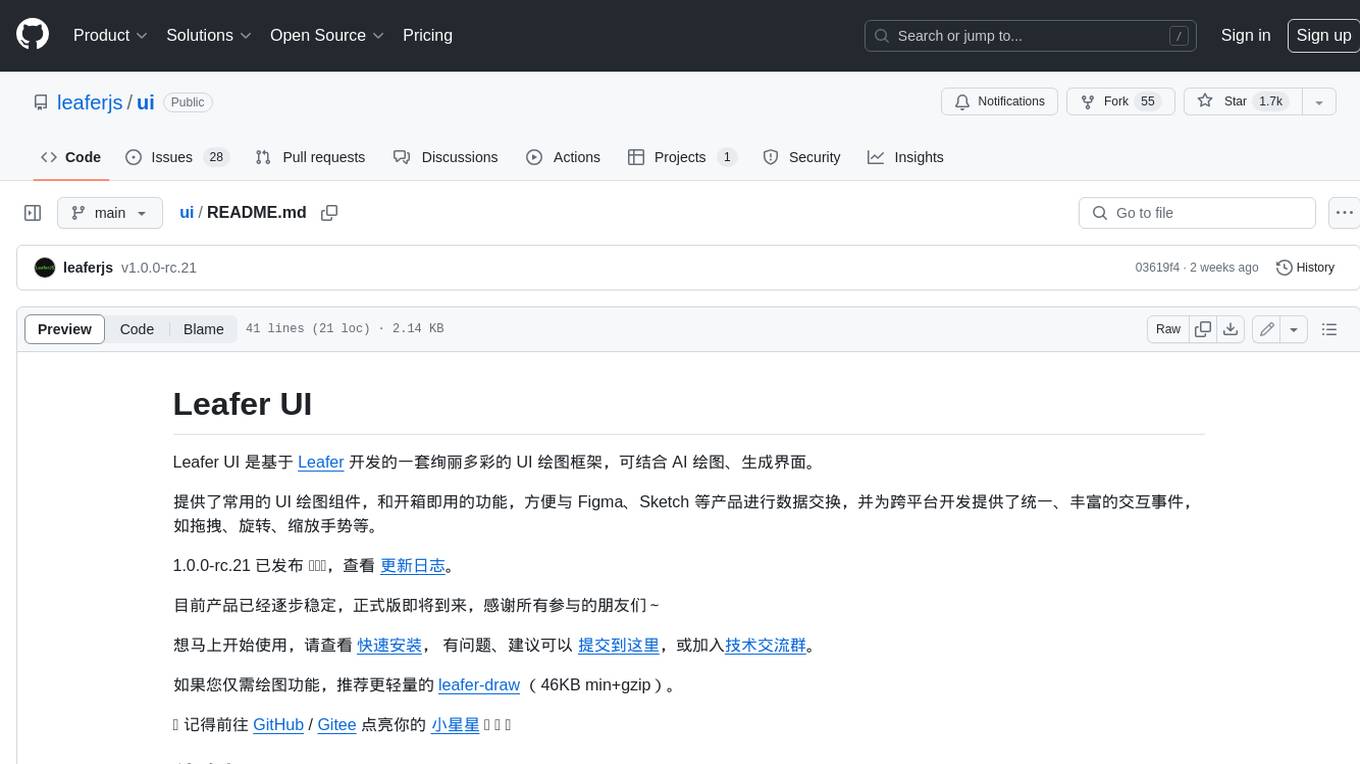
ui
Leafer UI is a colorful UI drawing framework developed based on Leafer, which can be used to combine AI drawing and generate interfaces. It provides commonly used UI drawing components and out-of-the-box functions, which is convenient for data exchange with products such as Figma and Sketch, and provides unified and rich interactive events for cross-platform development, such as drag, rotate, and zoom gestures. 1.0.0-rc.21 has been released 🎉🎉🎉, check the changelog. At present, the product has gradually stabilized, and the official version is coming soon. Thanks to all the friends who participated~ If you want to start using it right away, please check the quick installation. If you have any questions or suggestions, you can submit them here or join the technical exchange group. If you only need drawing functions, the lighter leafer-draw (46KB min+gzip) is recommended. 🌟 Remember to go to GitHub / Gitee to light up your little stars ✨ ✨ ✨
